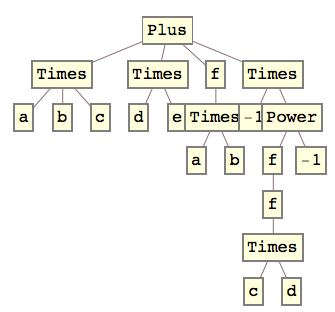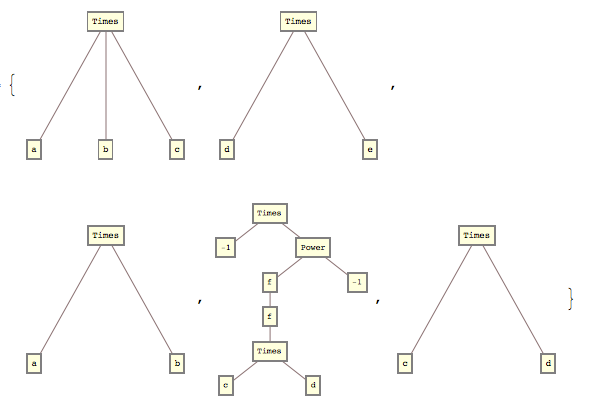Here's one way to count the number of multiplications in an expression (equal to or greater than the number of Times in the expression.)
t[x_]:=Tr@((Length[#] - 1) & /@ (Extract[x, {Sequence @@ Drop[#, -1]}] & /@Position[x, Times]))
Usage
t[a b c + d e + f[a b] - 1/f[f[c d]]]
6
Under the hood.
Let's examine a b c + d e + f[a b] - 1/f[f[c d]], using Position and Extract and `TreeForm.
The tree structure of the expression...
ClearAll[a, b, c, d, e, f]
(x = a b c + d e + f[a b] - 1/f[f[c d]]) // TreeForm

Then the positions of the head, Times.
Position[x, Times]
{{1, 0}, {2, 0}, {3, 1, 0}, {4, 0}, {4, 2, 1, 1, 1, 0}}
By dropping the final zero from each position we obtain the instances of Times including the arguments.
Extract[x, {Sequence @@ Drop[#, -1]}] & /@ %
{a b c, d e, a b, -(1/f[f[c d]]), c d}
...the number of items.
Length[%]
5
[t[] goes a step further to count the (arguments-1) for each Times, namely, 6.]
...a look at the structure of each of those instances of Times.
TreeForm /@ %%

